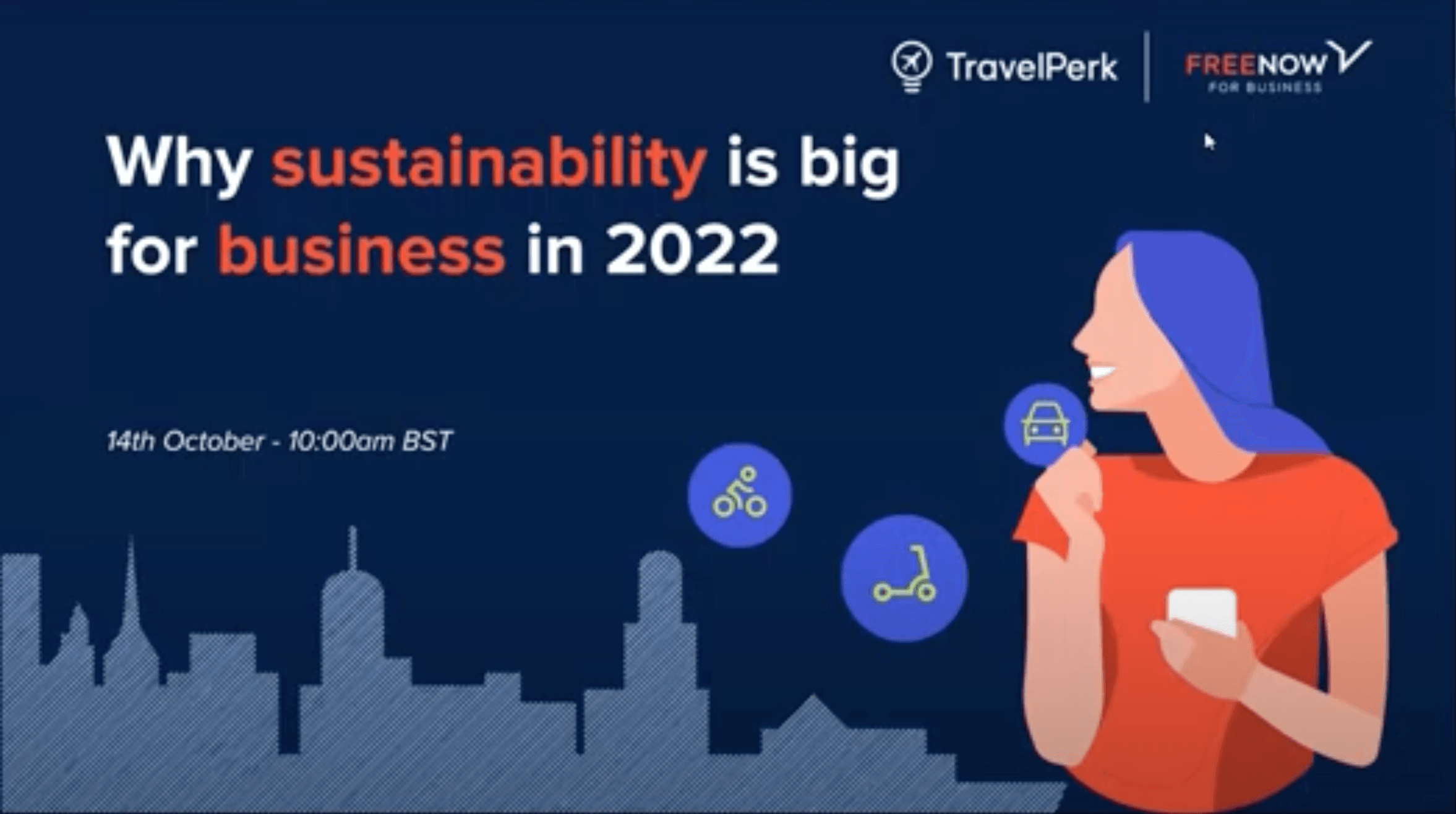TABLE OF CONTENTS:
In corporate terms, sustainability is all about businesses doing their best to be environmentally friendly and socially responsible. It's a win-win strategy in which companies make money while also helping the planet and its inhabitants. In a nutshell, it's about making smart choices today to ensure a better tomorrow for everyone.
What is sustainable mobility?
So, what does it mean when we talk about sustainable corporate mobility?
Think of it as companies finding better ways for their employees to get where they need to be to do their jobs, while also being kind to the environment.
Instead of everyone driving separate cars and polluting, it's about sharing rides, using electric vehicles or public transport, and maybe even biking or walking to work.
This not only reduces traffic jams, but it also helps cut down on pollution and makes our cities healthier places to live.
So, sustainable corporate mobility can be defined as businesses looking after our planet while getting their employees to work in style.
Are sustainable mobility and sustainable transportation the same?
Not quite! Sustainable mobility is the bigger picture — it covers all the ways that people move around, and includes walking and biking as well as different means of transport.
Sustainable transportation, on the other hand, focuses specifically on eco-friendly vehicles that get us from point A to B, like cars that run on electric and clean fuels.
Think of sustainable mobility as the Avengers and sustainable transportation as one of the awesome heroes on that team, all working together to make our world greener and cleaner.
Why is sustainable mobility important?
Sustainable mobility is a big deal because it's the key to a happier, healthier future.
It reduces air pollution, eases traffic jams, and makes cities way more enjoyable to live in. Plus, it saves us money and helps combat climate change by cutting down on harmful emissions. Sustainable mobility isn't just a cool choice, it's the smart choice for a cleaner planet and smoother, stress-free travel.
While the most sustainable forms of mobility are walking and biking, the reality is that these options are often not feasible when we’re moving around for business — having a range of business travel options that use sustainable transport is important, too.
Sustainable mobility goals for your business travel policy
As a company that is keen to take sustainability seriously and be responsible, an important tool that will help you achieve your sustainable mobility goals is your business travel policy.
This is similar to having a roadmap for responsible journeys. It shows that your company is committed to reducing the carbon footprint generated when your employees travel for work.
Your policy should encourage the use of eco-friendly transportation, staying in green accommodation and even choosing virtual meetings when possible. It's all about making smart choices that benefit the planet while still getting the job done.
Some key sustainable mobility goals to think about include:
Promote Public Transport: Encourage your employees to use public transport like buses, trams or trains for their corporate mobility whenever feasible. Provide incentives or subsidies to make it more attractive.
Adopt Electric Vehicles (EVs): Aim to transition your company's vehicle fleet to electric or hybrid options. Or better still, use a ground transport provider that has a wide range of electric vehicles, like FREENOW. Install charging stations at your sites to support your employees’ personal EV usage.
Carpooling and Ride-sharing: Encourage employees to carpool or use ride-sharing services for business travel. Implement a carpooling programme or partner with your ground transport provider to reduce single-occupancy vehicle trips. Think about offering FREENOW’s Mobility Budget as a perk or incentive to your employees so they can take advantage of more sustainable travel options for their commute and personal travel as well.
Virtual Meetings: Set a goal to reduce your physical travel to only what is necessary by using video conferencing and virtual meetings whenever possible. This not only reduces emissions but also saves time and costs.
Offset Carbon Emissions: Commit to offsetting the carbon emissions generated by business travel by investing in carbon offset programmes or initiatives that contribute to environmental conservation and sustainability projects.
Sustainable transportation examples to boost business travel policy
Having a good sustainable mobility strategy saves money on travel costs and reduces your carbon footprint, all while showing your commitment to a greener future. Plus, it boosts your company's reputation as a responsible and forward-thinking player in the business world.
Implement sustainable transportation to boost your business travel policy whenever possible.
Here are a few sustainable transportation examples to get you started.
Electric Vehicles (EVs): EVs produce zero exhaust emissions and are more energy-efficient than traditional petrol and diesel-powered vehicles.
eBikes, eMopeds and eScooters: these can be a great option for moving around the city quickly, and they reduce traffic congestion and lower emissions.
Public Transport: is more energy-efficient and produces fewer emissions per passenger mile compared to single-occupancy vehicles.
High-speed trains: these are a great alternative to flying, often getting you there just as quickly and easily, and with a fraction of the carbon footprint.
In the race towards a greener, more responsible corporate future, sustainable corporate mobility has emerged as a frontrunner. It's not just about changing how we travel, but rather, about changing the way we think.
By embracing eco-friendly transport options and forward-thinking policies, your business can zoom towards success, while reducing your environmental footprint. Sustainable corporate mobility isn't just a trend; it's a smart, sustainable strategy that will help create a world in which we move better, live better and leave our planet in a better condition for the next generations.


